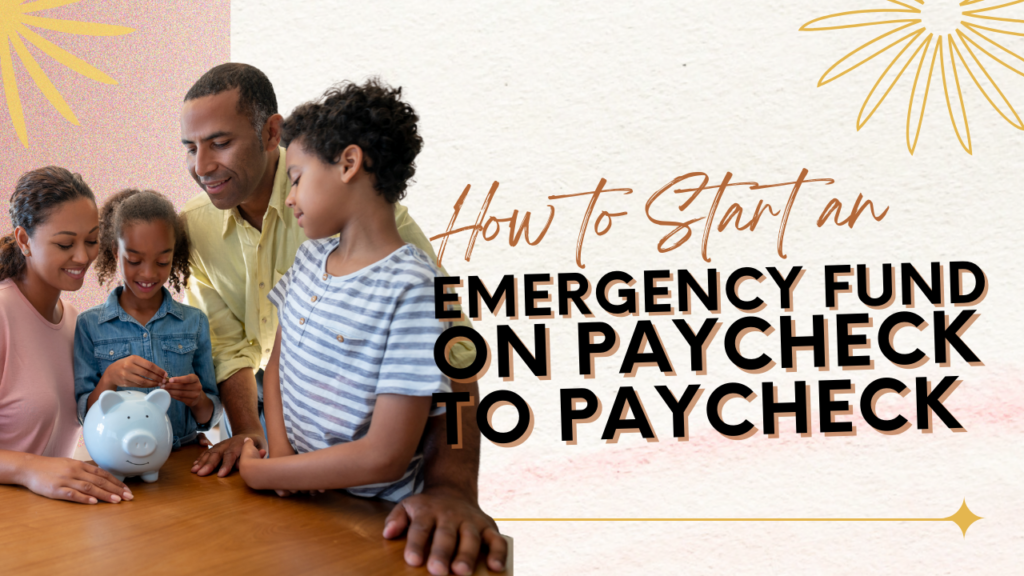Hey there, wonderful moms! Diving into the world of rental property investment might seem like stepping into a whole new universe, especially when you’re juggling the supermom duties of running a household, caring for the kiddos, and everything else in between.
But imagine if we could find a way to boost our family’s income while still being the amazing moms we are. That’s what we’re chatting about today: the ups and downs of investing in rental properties. It’s like having a heart-to-heart over coffee but with some financial insights tossed into the mix.
So, let’s break it down together, shall we?

Understanding Rental Property Investment
Alright, lovely moms, let’s break down this whole rental property investment thing, shall we? Think of it as deciding on the next family vacation destination but with a bit more paperwork and potentially a bigger payoff!
What Is Rental Property Investment?
Imagine you buy a house or an apartment—not to live in, but to rent out to someone else. This property becomes a source of income because your tenants pay you rent. It’s kind of like buying a tree that grows money instead of leaves, except this tree needs a bit more care and attention.

How Can Real Estate Investments Benefit Your Family?
1. Extra Money in the Piggy Bank: The most obvious benefit is the extra cash. This money can go towards anything from college funds for the kids to a retirement nest egg for you.
It’s like having a side job that doesn’t require you to leave your family or even change out of your pajamas!
2. A Safety Net: Over time, the value of your property might go up. That means if you ever decide to sell it, you could make more than what you initially paid. It’s a bit like buying a toy on sale and finding out it’s a collector’s item years later—score!
3. Tax Time Smiles: Yes, owning a rental property comes with its share of paperwork, but it also comes with tax deductions.
You can often write off expenses like mortgage interest, property tax, and maintenance costs. It’s a bit like having a coupon for tax season!
4. Mixing It Up: Just like you wouldn’t want all your meals to be the same, you don’t want all your investments to be identical. Adding real estate investing to the menu can make your financial diet more balanced.

If the stock market is giving you indigestion, your rental income might still be serving up comfort food. You can try exploring real estate investment trusts.
Belong says, “If you’re buying a new property for the rental market, speak to a financial advisor first. They can help you plan for your individual situation and look at the bigger picture including fixed income, equities, and real estate. This will help you to plan and make more informed decisions before tying up your money in real estate. ”
Challenges and Considerations
Before you jump in, there are a few things to munch on. The property might sit empty between tenants, repairs can pop up like uninvited weeds, and navigating tenant-landlord laws can feel like deciphering a secret code.
Plus, the initial cost can be hefty—not just buying the property but also keeping it in shape. This is where rental property financing comes in.

According to Moses the Mentor, “The decision to invest in rental property should be based on a careful assessment of these pros and cons. Conduct thorough market research, plan your finances strategically, and be prepared for the responsibilities that come with being a landlord. Choosing the right property and understanding the legal aspects of property management are critical steps.”
The Pros of Investing in Rental Properties
Alright, let’s chat about the sunny side of owning rental properties. Imagine you’re planting a garden. Each property is like a different plant, and with the right care, they can bloom beautifully, providing you with a lovely view and maybe some fruits or veggies.
Here are the “greens” you can look forward to when it comes to rental property investing:
1. Steady Income Stream
Think of this like your garden giving you a fresh batch of veggies every month. Rent from tenants can be a reliable source of income that comes in like clockwork.
It’s money that can help cover the mortgage, pay for repairs, or even fund those little extras that make life sweeter, like dance lessons for the kids or a weekend getaway for the family.

2. Property Value Appreciation
Over time, your investment property and annual rental income can grow in value, much like a seedling growing into a robust tree. This means that if you decide to sell it down the line, you could get more than what you paid for it. It’s a bit like investing in a fine wine that becomes more valuable as it ages.
Even if you’re not looking to sell anytime soon, just knowing your investment is appreciating can be pretty comforting.
3. Tax Advantages
Who doesn’t love saving money on taxes? Owning rental property comes with tax perks, allowing you to deduct expenses such as mortgage interest, property tax, operating expenses, and depreciation.
It’s like having a bunch of coupons you can use to lower your tax bill, leaving more money in your pocket for other things.

4. Diversification of Investment Portfolio
Putting all your eggs in one basket can be risky, whether we’re talking about your investment portfolio or your weekly grocery shop. Just as you wouldn’t want only eggs in your fridge, diversifying your investments can help protect you financially.
Real estate can be a solid addition, often moving differently than the stock market, which means if stocks are down, your real estate investment might still be doing just fine. It’s a bit like having a backup plan that ensures you’re covered no matter what.
5. Leverage
Leverage is a fancy way of saying you can use a small amount of money (like your down payment) to control a much larger asset (the rental property). It’s like using a lever to lift a heavy rock with less effort.
This can amplify your returns, making it possible to earn more from your investment than you could from saving the same amount of money in a traditional way.

6. Building Equity
Mortgage payments made are like planting a seed for your future. Part of that payment goes toward the loan’s principal, not just the interest, helping you build equity in the property, much like with your primary residence.
Over time, this can increase your wealth without you having to do much more than ensure those payments are made. It’s like watching your garden bloom, knowing that every bit of effort you put in pays off in the end.
The Cons of Investing in Rental Properties
Now, let’s talk about the other side of the coin—because even in the most beautiful gardens, there are a few weeds.
Here are some of the challenges and not-so-fun parts of owning rental properties, kind of like the chores that come with the joys of parenting.

1. Financial Risks
Investing in real estate can sometimes feel like betting on a rainy day picnic. There’s always a chance the sun won’t come out. Unexpected expenses can pop up, like emergency repairs or periods when the property is empty between tenants.
And, if you’ve got a mortgage on the property, you’ll need to make those payments whether or not you’ve got money coming in. It’s a bit like planning a big family outing, only to have unexpected expenses crash the party.
2. Management Challenges
Being a landlord is a lot like adding another child to your brood, one that doesn’t always sleep through the night. You might deal with late-night calls about broken plumbing, find yourself mediating disputes between tenants, or spend weekends turning over a unit.
Property management can be time-consuming and sometimes as draining as a toddler’s tantrum.

3. Legal and Regulatory Hurdles
Navigating tenant-landlord laws can feel like trying to solve a Rubik’s cube while cooking dinner and helping with homework—complicated and sometimes frustrating.
There are rules about everything from security deposits to eviction procedures, and they can vary widely depending on where your property is located. It’s important to be well-versed in these laws to avoid legal headaches.
4. Real Estate Market Volatility
Real estate markets can be as unpredictable as a game of hopscotch played on a windy day. Property values and rental rates fluctuate based on a myriad of factors outside your control, from economic conditions to changes in neighborhood popularity.
This volatility means your investment’s performance can be somewhat uncertain, and the return might not always be as high as you hoped.

5. Tenant Issues
Finding good tenants is like searching for a needle in a haystack for rental property owners. And even when you find them, there’s no guarantee things will always go smoothly. You might encounter tenants who pay late, damage the property, or are difficult to work with.
Dealing with these issues can be stressful and time-consuming, taking away from the joy and peace you cultivate in your personal and family life.
6. Initial Capital Requirement
Getting started in rental property investment often requires a significant amount of money upfront for the down payment, closing costs, and any initial repairs or renovations the property needs.
It’s a bit like saving for that dream family vacation—it takes a big chunk of change and some serious budgeting to make it happen.

The Mom Approach
Think of it like planning a family road trip. You need to know your route (what kind of property you’re looking for), prepare for pit stops (maintenance and repairs), and keep everyone happy along the way (your tenants).
And just like with parenting, there’s no one-size-fits-all answer. It’s about what works best for your family’s needs, goals, and lifestyle.
As Investopedia says, “It’s key for investors in any type of real estate to stay on top of interest rates and consult a tax professional, particularly with the recent changes to the tax code.”
A financial advisor can definitely help real estate investors like you, especially in terms of property taxes. You can also hire a property manager to help you run things.

To Wrap Up
And there you have it, my fellow mom warriors! We’ve journeyed through the ins and outs of rental property investment, weighing the sunny upsides against the potential rainclouds. Whether you’re already envisioning yourself as the next real estate mogul or you’re just dipping your toes in the investment waters, remember, you’re not alone.
This decision isn’t just about the numbers; it’s about what works for you and your family, your dreams, and your peace of mind. So, take a deep breath, gather all the love and wisdom you pour into your family, and channel it into this decision. After all, being a mom has already equipped us with the superhero skills we need to navigate the world of investment.
Here’s to making informed choices and building a prosperous future for our families.




